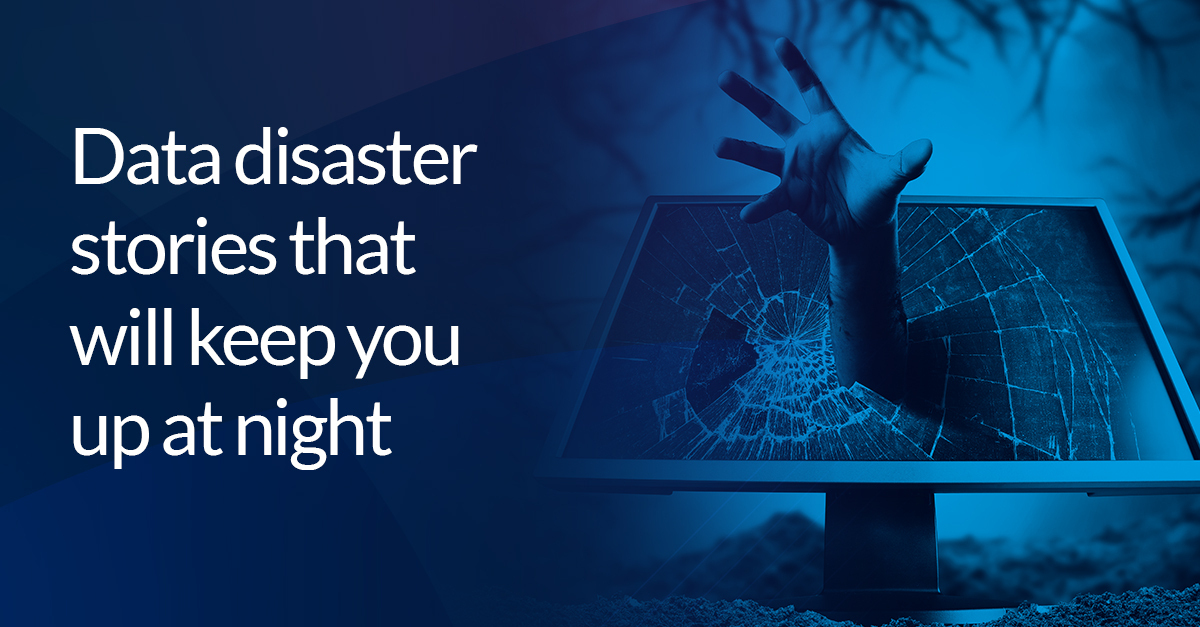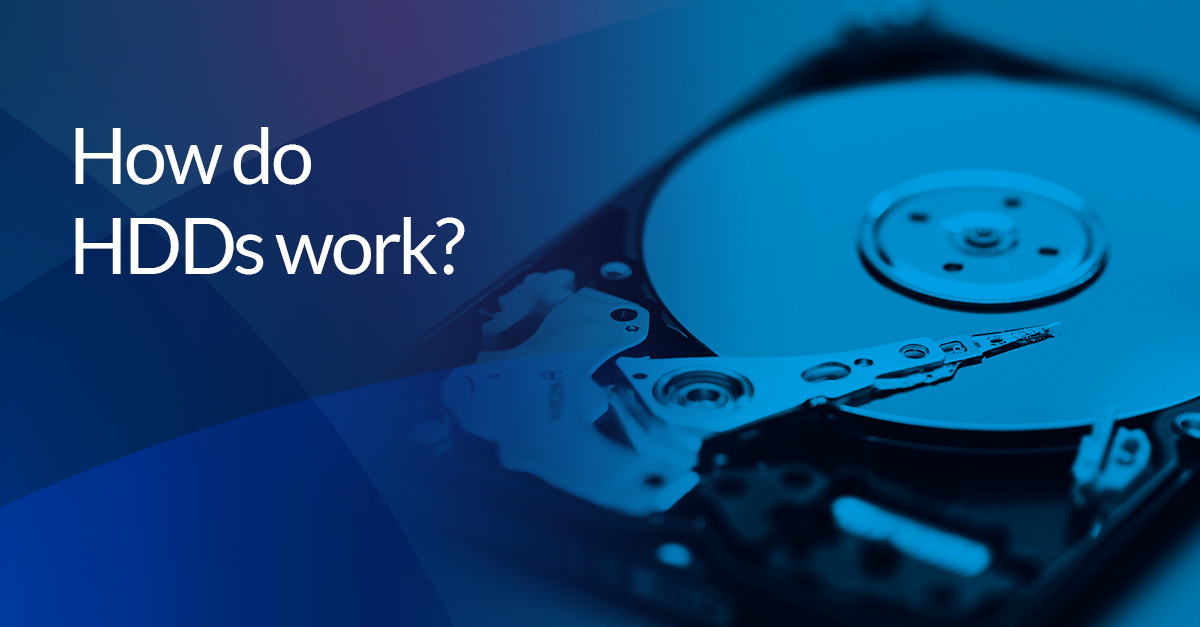Data disaster stories that'll keep you up at night

Data disasters come in all shapes and sizes, from personal to global. From fires and floods to theft and old fashioned human error, it can feel like they lurk in the shadows waiting to pounce.
It’s that time of year where it’s perfectly acceptable to gather loved ones in a dark place, hold a flashlight to your chin, and tell terrifying stories all in the name of fun. So if your old ghost, ghoul, and vampire stories are getting more eye rolls than goosebumps nowadays, these tales of data loss are sure to scare the bits and bytes out of them.
Rattling Blockchains
In 2013, James Howells made a mistake that will probably haunt him for the rest of his life. He threw out an old, unused hard drive that’d been sitting in a drawer for years, forgetting the drive held 7,500 bitcoins. He’s tried several times to get permission from his local government to excavate the landfill where the drive most likely ended up, offering a reward of 25% of the total value if they allow him to dig.
At the time of writing, the price of bitcoin (BTC) is just over $62,000, making the lost fortune approximately $465,755,250. What a nightmare!
Bump in the Night
Imagine you’re a busy data analyst working for the Department of Veterans Affairs. Perhaps it was a dark and stormy night, but you had some work you needed to finish. As you’d done for years, you bring your unencrypted laptop home, complete your work, and head off to bed. But in the dead of night, a burglar ransacks your home and steals the laptop.
That laptop contained the personal information of 26.5 million veterans, information including Social Security numbers, birthdates, names, and even disability status. It also held the same information for over 2 million additional active duty military members.
This is exactly what happened in 2006. The laptop was recovered and the VA says none of the information was accessed, but the consequences of what could have been are enough to send shivers down your spine.
Invasion of the Data Snatchers
1.1 billion. That’s how many people were potentially affected by one of the world’s largest data leaks. Aadhaar is India’s national ID database, and it holds a variety of incredibly sensitive data about nearly every citizen in the country. Biometric information like fingerprints and eye scans, what government services they use, even financial and commercial data is all attached to a 12-digit code. In 2017, a data leak from a state-operated utility company led to the exposure of all this info, some of it even ending up for sale on Whatsapp!
The Library of Alexandria Massacre
In some context or another, you’ve most likely heard of the fire that destroyed the Library of Alexandria. For centuries we’ve lamented the loss of countless historical documents, wondered at the golden knowledge we could have built upon if it hadn’t been for such wanton destruction.
Experts now say that the story, as we know it, is largely a combination of multiple historical events. The end result is an allegory that’s been used to teach many lessons throughout time, one of which is the importance of protecting knowledge and information we value most. The mere idea of its loss has been told as a scary story for hundreds of years.
28 Days Later...
And for a data disaster that’s still unfolding, look no further than major broadcaster Channel 4 in the UK. A month ago, their broadcast center’s fire suppression system went off. Many British TV channels were temporarily affected, but because of an issue with C4’s data recovery, they lost the ability to offer access services like subtitles, audio descriptions, and sign language support. They had backups but their backups failed. It’s a frightening, and very public, reminder to practice the industry standard 3-2-1 backup strategy no matter how big or small you may be.
To be continued
If some of these scary tales chilled you to the bone, rest assured - they were all entirely preventable with the right data recovery plan in place. Now might be a good time to double check your backups, ensure you know what to do in case the worst happens, and get true peace of mind. It’s like turning on the lights and enjoying some Halloween candy after a good horror film!
And of course, if you’d like to chat with one of our experts to make sure you’re doing all that you can, we’d be happy to help.

Previous Post

